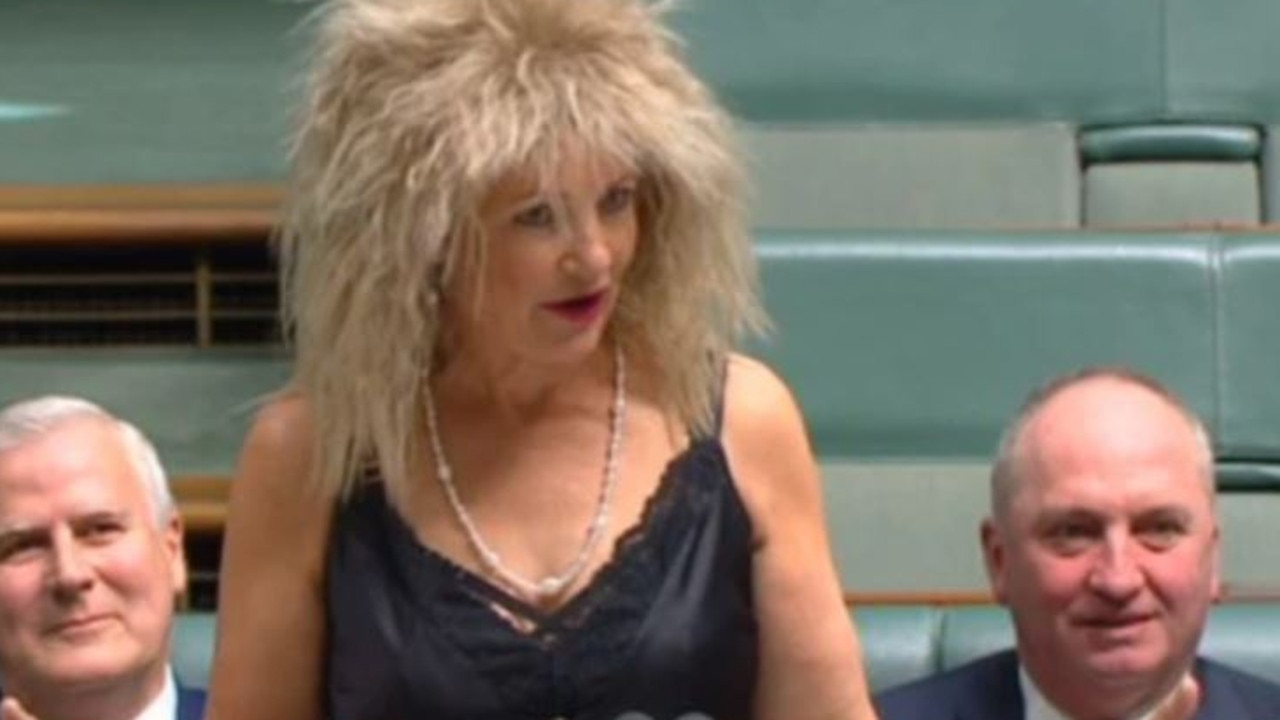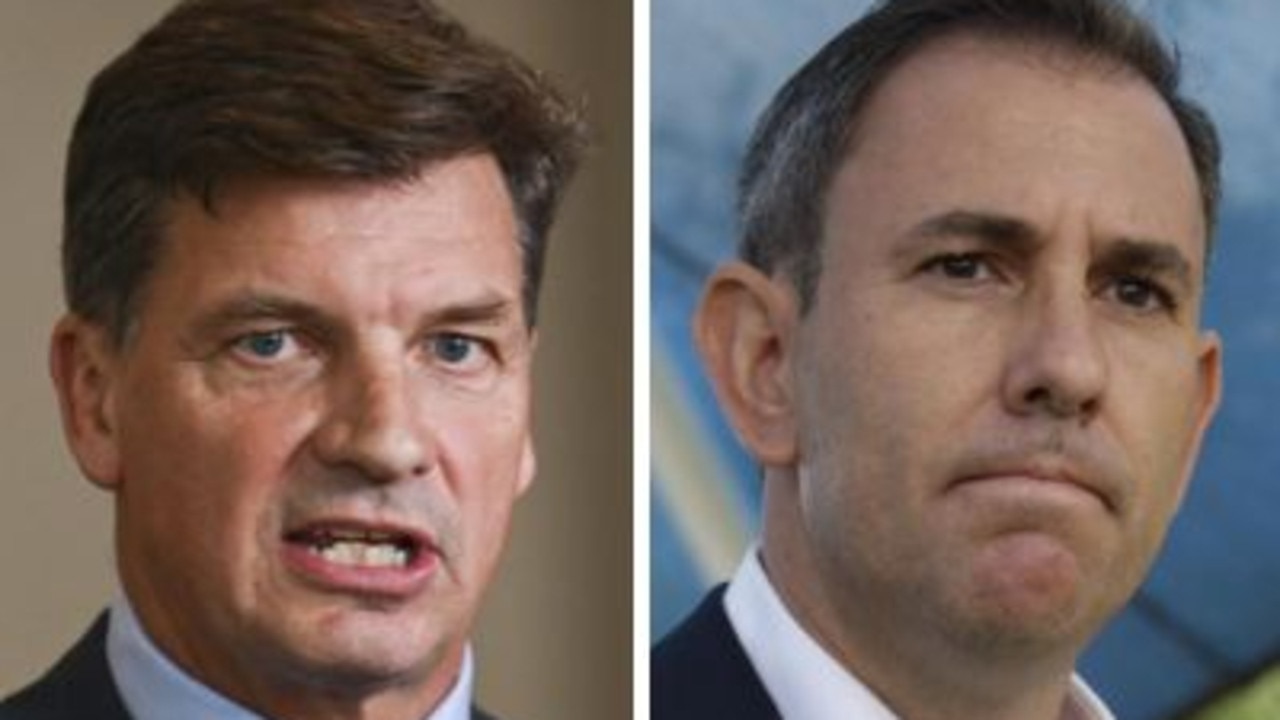Crackdown on the black economy intended to raise $600 million
FORGET paying cash for cheap, tax-free items — services from cleaning to couriers are being targeted in a scheme to raise $600 million.
Fed Budget
Don't miss out on the headlines from Fed Budget. Followed categories will be added to My News.
IF you make a living taking cash, or get jobs done on the cheap by paying workers under the table, it could soon be game over.
The Black Economy Taskforce is ramping up, and the Government plans to claw back almost $600 million through a fresh crackdown — with couriers and cleaners next in the firing line.
Many payments go untaxed, and the Treasury believes this seemingly innocent “cash economy” is costing us $24 billion, or 1.5 per cent of GDP.

The Budget revealed that the Australian Taxation Office will receive $32 million for a year of extra funding for its “Level Playing Field” and “Strengthening Foundations” programs targeting small business. This will increase expenses by $141.8 million over four years with an expected revenue return of $589 million.
From hairdressers to plumbers to web developers, all sorts of people are circumnavigating the tax system to save them (and often their customers) some money.
Board of Taxation chairman Michael Andrew last month described the practice as Australia’s “national sport”, and said it would take hard work to change societal attitudes.
But 29-year-old Jack Stone*, from Bondi, told news.com.au he didn’t see the cash economy as cheating the taxpayer.
“The little guy earning $20 or $30 an hour cash is a drop in the ocean next to Google or some of these other corporations not paying a penny,” he said.
“I’ve had a few cash jobs. The first was washing dishes in a cafe in Redfern for two weeks. The owner was dodging tax and he paid $16 an hour so it was below minimum wage I think, but it worked for me. Second one was a mate who was a sole trader and didn’t want to look like he was employing anyone.

“A lot of construction workers are on ABN. So they run as their own business and it’s up to them how they pay tax. That’s what I do now. I honestly don’t think the Government can stop it really, especially in construction.
“I also do cash jobs here and there to this day as it’s easy and for one-offs, everyone benefits except the Government.”
Anna Price*, 34, told news.com.au she “didn’t want to work illegally for rubbish money” but as an international student from the UK on a visa, it was her only option.
“I’m studying full-time and am only allowed to work 20 hours per week. For most internationals who are only able to get bar or waitressing jobs here, this does not allow us to make enough to even pay the rent so we have to take illegal work to make up the difference.
“Ridiculous work rights tied to various visa restrictions put non-residents at risk, where they have no choice but to take these jobs and are taken advantage of.
“I see why small businesses do it as a way to save on tax. If the Government wants to crack down they need to look at the whole thing — visas and how much tax they charge small business and come up with a solution that actually works, as it is well and truly broken at the moment.”
Lewis Zhang*, who was paid in cash for DJing gigs around NSW, said the companies he worked for would take down his bank details and only pay through formal channels for around one in four appearances.
“They do tend to play on a dumb kid’s wish to keep it simple and maximise their amount,” he told news.com.au. “Some small businesses, however, couldn’t survive if they didn’t do this ... it would either raise the costs to the client, or they’d just go bust.”
Mr Zhang said one issue with not being on the books was workplace safety and compensation. “I was happy to work this way and didn’t have a problem with it but in hindsight, things like working in loud clubs where I’ve lost some of my hearing, back problems from transporting speakers up and down stairs, the late nights ... I think I can now understand in hindsight why it’s better to go through the formal channel.
“When you’re younger you don’t think or care about things like workers comp, you just want the cash there and then.”
Revenue and Financial Services Minister Kelly O’Dwyer said in December the Government wanted to “close down any potential loopholes” and even potentially remove the $100 note from circulation.
“There’s nothing wrong with cash per se, the issue is when people don’t declare it and when they don’t pay tax on it,” she said.
Ms O’Dwyer warned there are three times as many $100 notes in circulation than $5 notes. “It does beg the question, ‘Why?’” she said.
Clive Rabie, CEO of Australian cloud accounting firm Reckon said today: “Small and medium businesses that engage in black economy activities such as ‘cash only’ for illegitimate reasons are getting an unfair advantage as they can undercut other businesses doing the right thing and who are paying their fair share of taxes.
“It is positive to see the Government provide an additional $32 million in funding to the ATO for to better target black economy risks on businesses with a turnover up to $15 million as this will help level the playing field for all small businesses. It is important that The Black Economy Taskforce provide more detailed proposals for action to counter the black economy when it reports back to the Government later this year.”
Originally published as Crackdown on the black economy intended to raise $600 million


